Science Highlights
-

Exploratory Series: Archaeology and HPC
Running from boulders, jumping across chasms, defeating villains while simultaneously finding ancient and mysterious artifacts—this is archaeology. Except, that’s not quite true. These are common misconceptions people tend to have about the field, an...
-
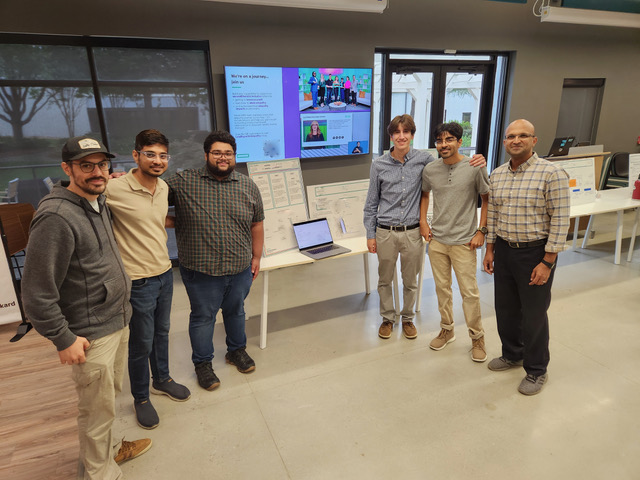
RCAC students shine in summer internships across the nation
This past summer, Purdue University’s Rosen Center for Advanced Computing (RCAC) students ventured far and wide to gain invaluable professional experience at various companies throughout the nation. Their diverse journeys have showcased their talents...
-
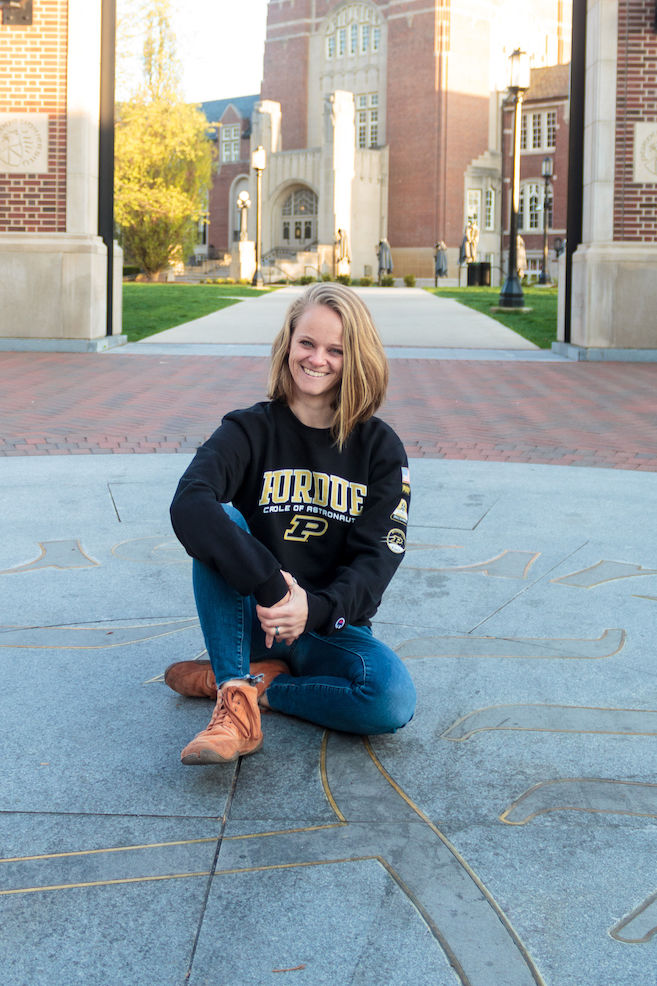
Women in HPC sponsors student attendance at SIGGRAPH conference
Purdue’s Women in High-Performance Computing (WHPC) group has sponsored student attendance at a series of conferences in 2023. One of those students, Kate Koury, who is earning a master’s degree in computer graphics technology, recently returned from...
-
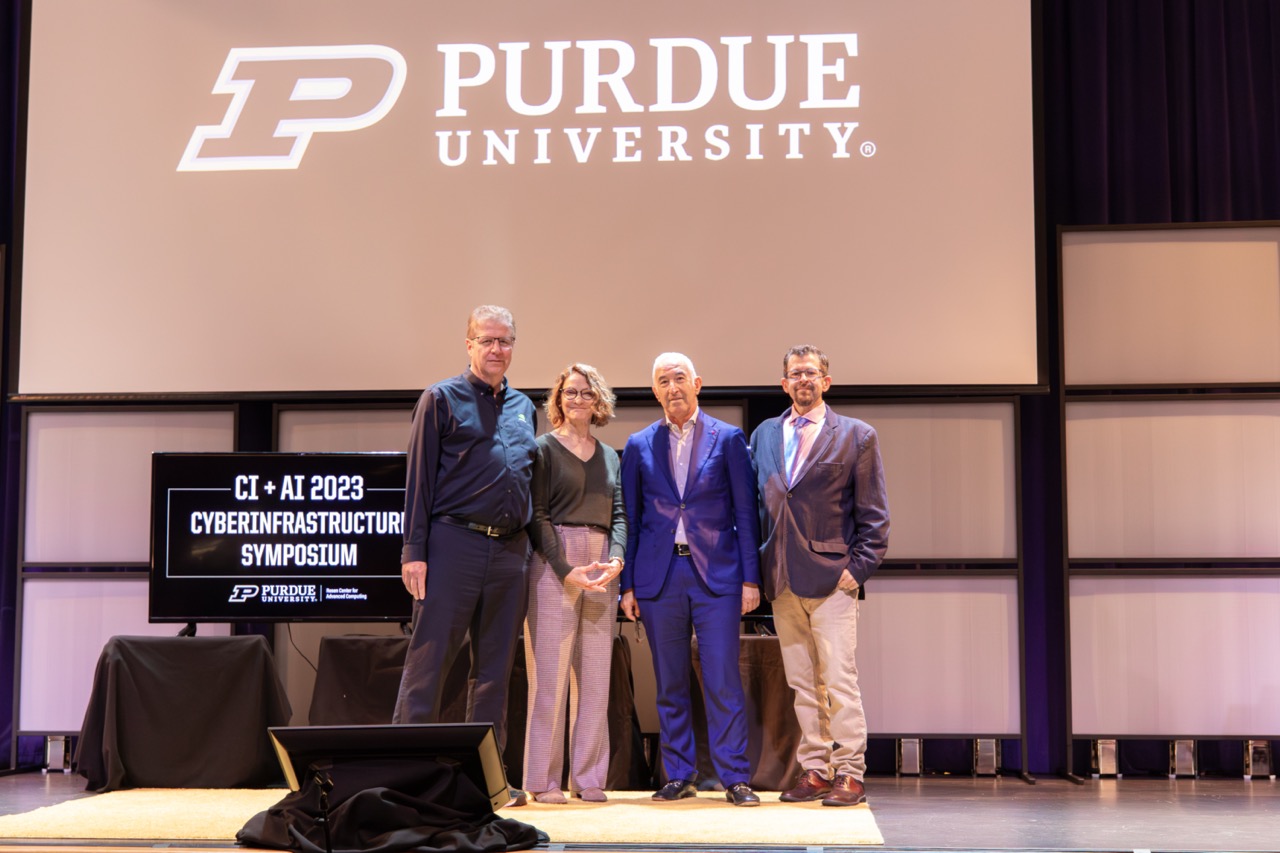
RCAC hosts second annual cyberinfrastructure symposium, focus on AI future and ethics
The Rosen Center for Advanced Computing (RCAC) held its second annual cyberinfrastructure symposium “Cyberinfrastructure and AI” on October 12. The event, a follow-up to last year’s inaugural symposium, featured a keynote address from DataDirect Netw...
-
The Emerging Technologies in Learning Design and Technology group in the College of Education, led by Victoria Lowell, and George Takahashi from the Rosen Center for Advanced Computing (RCAC)’s Envision Center, are collaborating to offer a new three-...
-
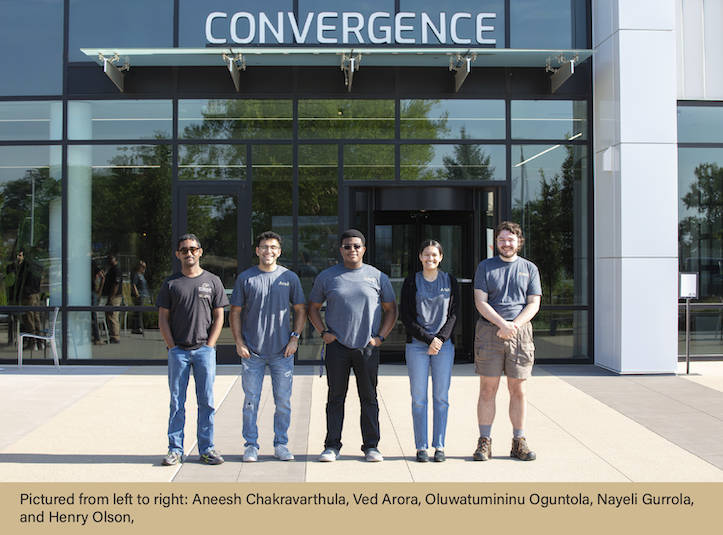
Anvil REU Summer 2023 program is a tremendous success
After 11 weeks of hard work and hands-on education, the Anvil Research Experience for Undergraduates (REU) Summer 2023 program has come to a close. This year’s Anvil REU program saw five students from across the nation gather at Purdue’s campus in We...
-
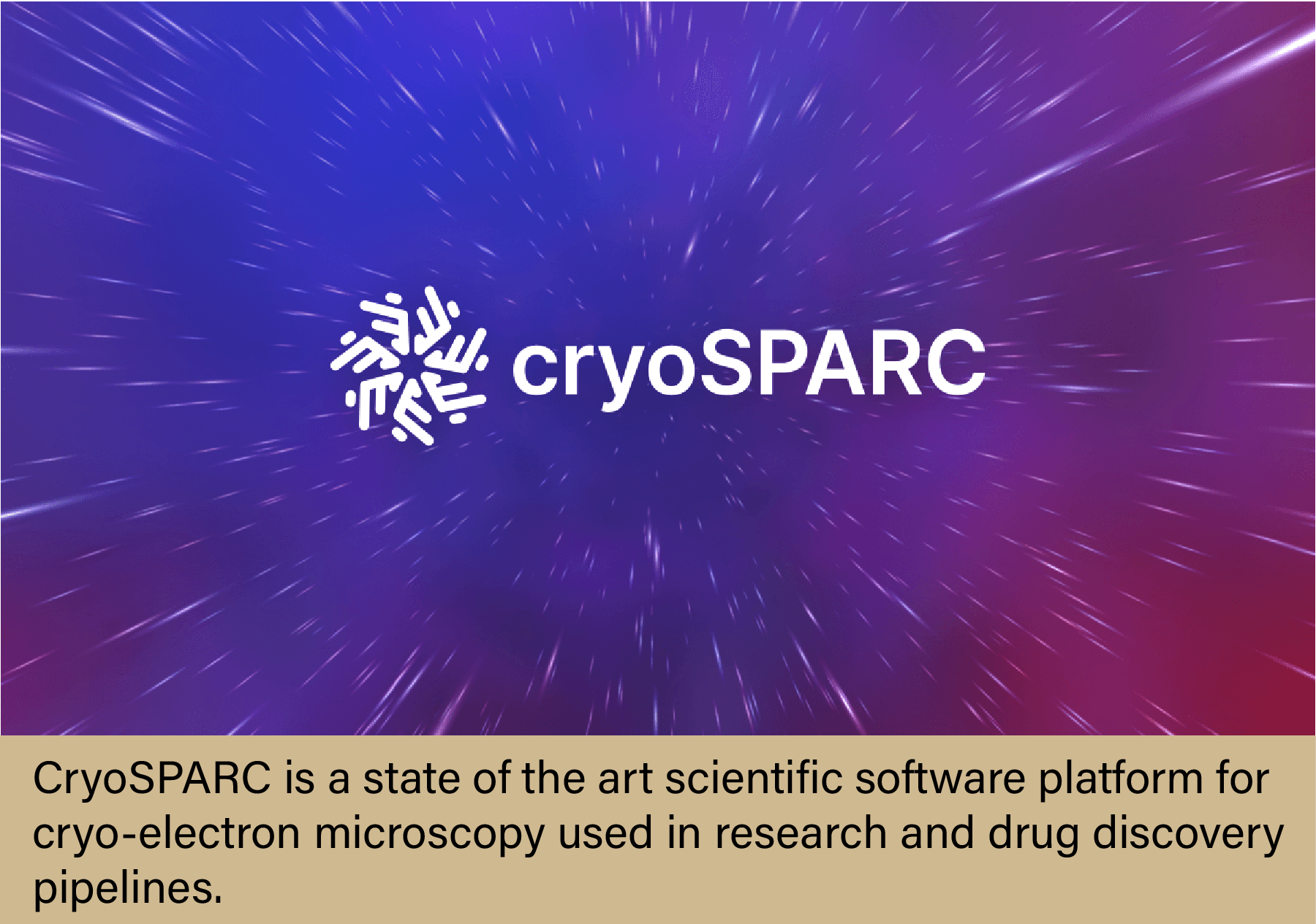
Introducing CryoSPARC: Anvil’s powerful new software aimed at bioscience research
The Anvil supercomputer has recently received a full integration of CryoSPARC, a state-of-the-art HPC software solution designed to enable the complete processing of single-particle cryo-electron microscopy (cryo-EM) data. With this new addition to...
-
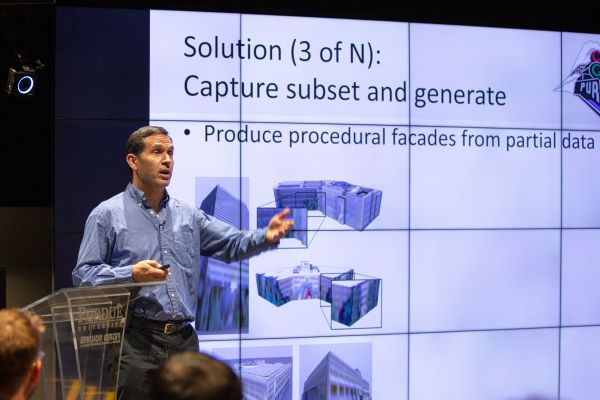
Purdue research team uses 100 RCAC GPUs to create urban representations of 330 US cities
In a multidisciplinary endeavor that has far-reaching implications for computer science, urban planning, digital urban forestry, ecological sciences, and related domains, a team led by Daniel Aliaga, associate professor of computer science, has lever...
-
Rosen Center for Advanced Computing staff to present at research computing conference
Rosen Center for Advanced Computing (RCAC) staff will present posters and papers and lead workshops at the upcoming Practice and Experience in Advanced Research Computing (PEARC) conference held in Portland, Ore. from July 23-27, 2023. The PEARC conf...
-
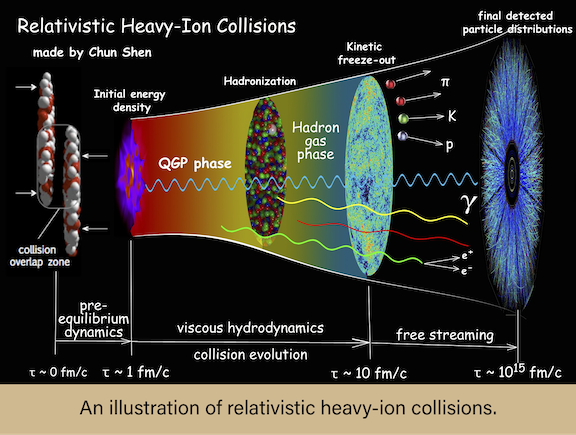
Purdue’s Anvil supercomputer helps researchers look at the origins of the universe
A long time ago, before there were galaxies far, far away, there was an explosion of unimaginable proportions. Everything that ever has and ever will exist in the universe was compressed within a single point, and for reasons unknown, that point expl...
-
RCAC, College of Agriculture partner to reshape agriculture research
Purdue’s Rosen Center for Advanced Computing (RCAC) has partnered with the College of Agriculture to develop cyberinfrastructure that better serves the computational and data management needs of agriculture researchers. The College of Agriculture’s A...
-
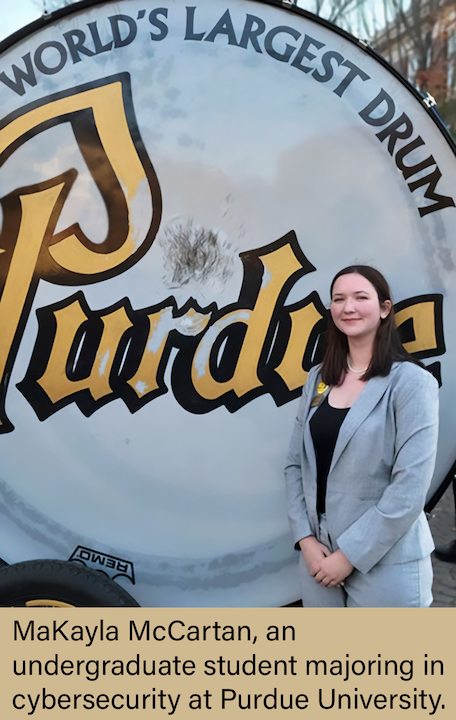
Anvil REU Student Lands Cybersecurity Role
MaKayla McCartan is an undergraduate student at Purdue University, where she majors in cybersecurity and minors in both sociology and organizational leadership. McCartan was a participant in the 2022 Anvil REU program, and has recently accepted an in...
-
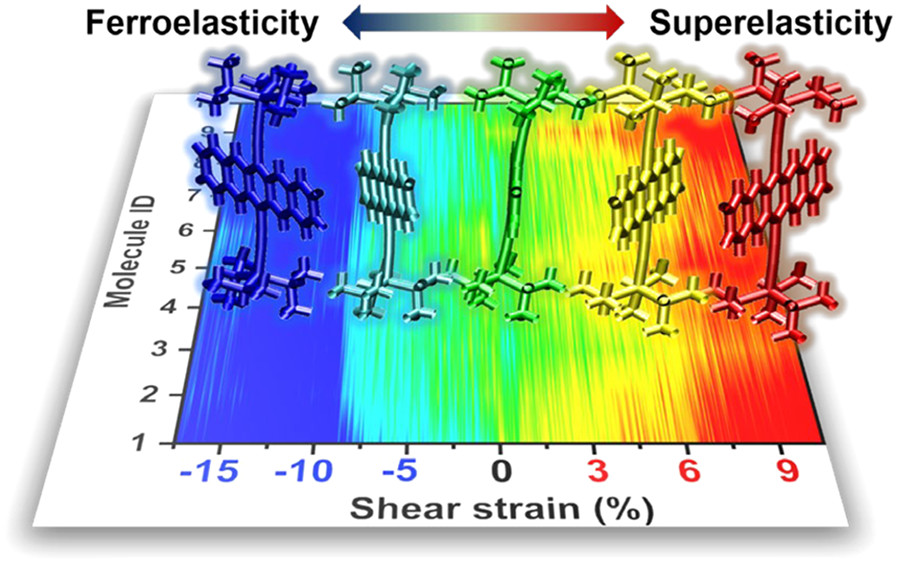
RCAC supercomputers help Purdue professor unlock mysteries of mechanics and material chemistry
A Purdue researcher who studies material chemistry is using the Rosen Center for Advanced Computing’s (RCAC) supercomputers to learn more about how materials behave in products like organic electronics and lithium-ion batteries. Kejie Zhao, professor...
-
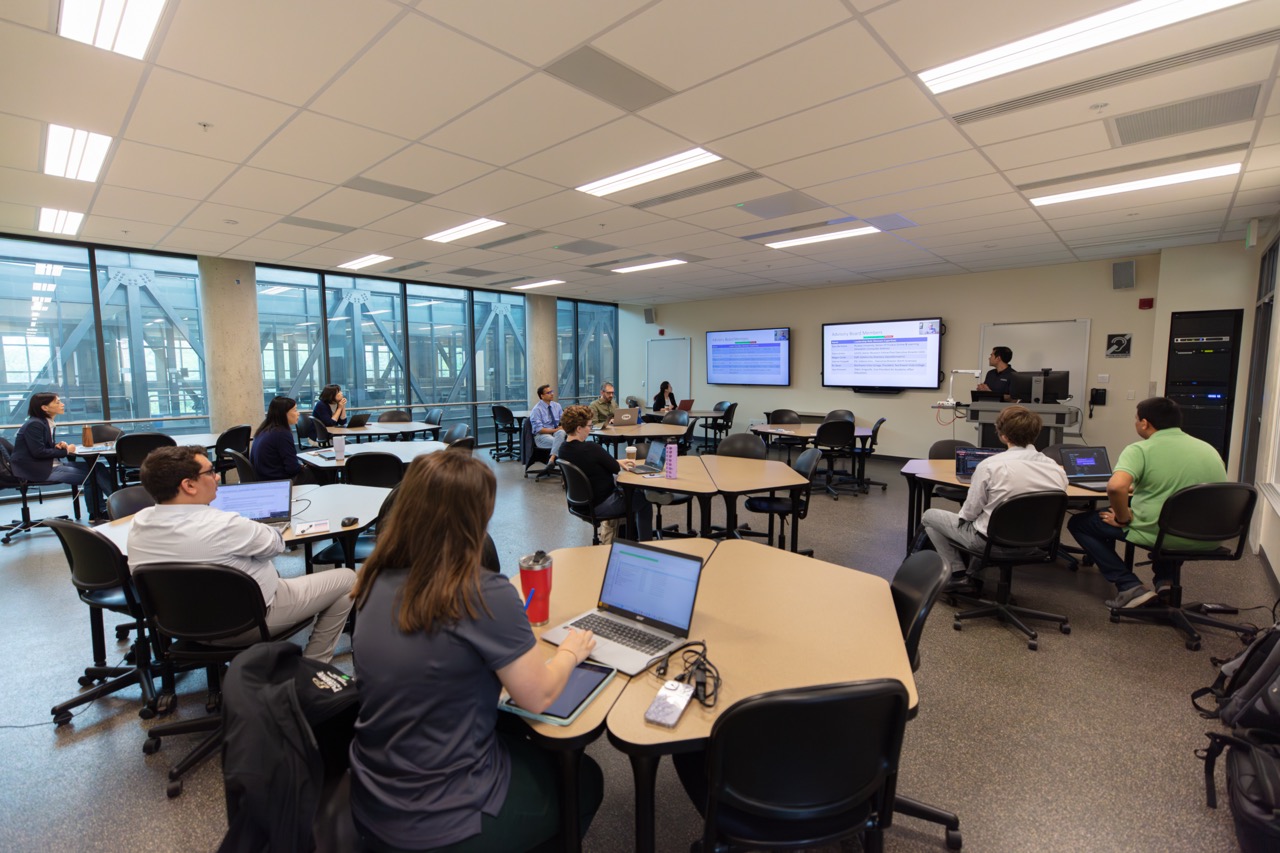
RCAC partners with Purdue faculty on NSF-funded cybertraining program
Purdue’s Rosen Center for Advanced Computing (RCAC) is a partner on an $850,000 grant awarded to a team led by Venkatesh Merwade, professor of civil engineering, to create a cybertraining curriculum for climate, water and environmental (CWE) sustaina...
-
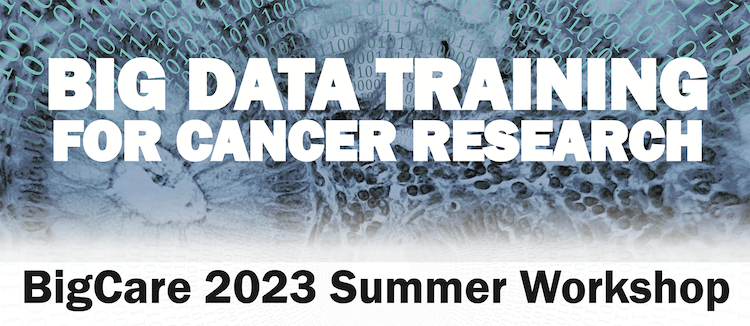
Cancer researchers learn about big data analysis using Anvil
The BigCare 2023 Summer Workshop, an on-site program that utilized the Anvil supercomputer to help train cancer researchers on how to harness the power of big data, has recently concluded, and based on participant feedback, it was a huge success! The...
-
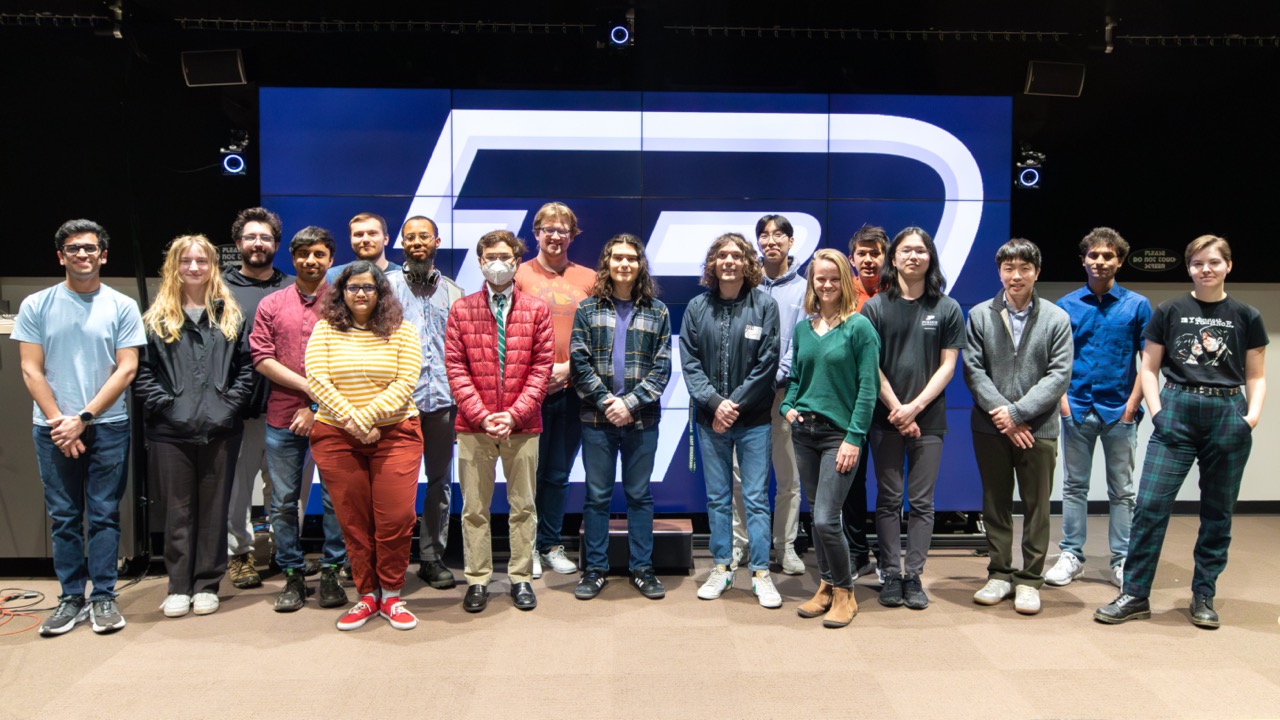
Envision Center student event gives seniors a chance to showcase projects
The Envision Center's recent senior presentation event held on April 24 was a success and gave the center’s graduating seniors a chance to showcase their hard work and accomplishments. Attendees were able to hear from their peers about their project...
-
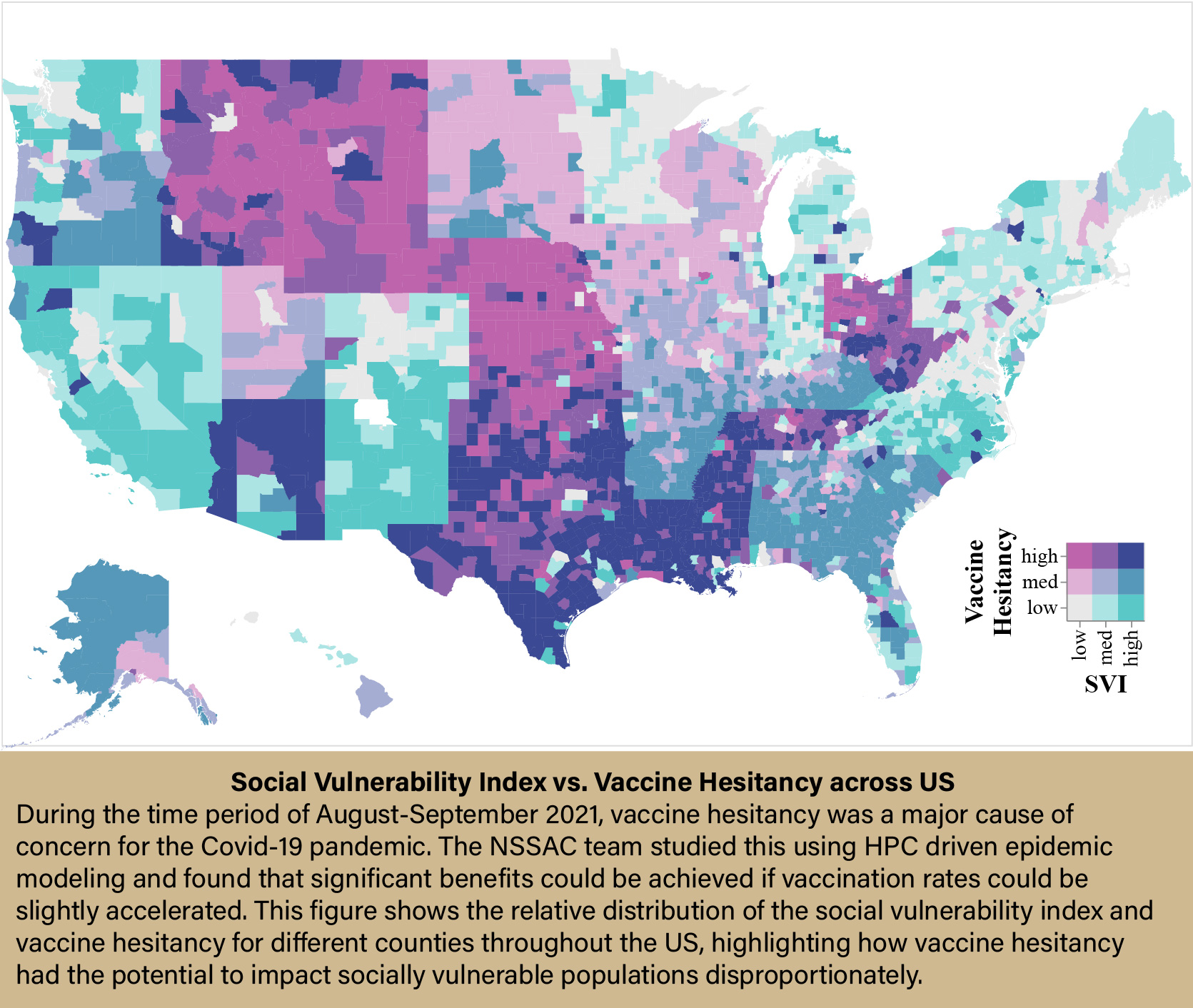
Purdue’s Anvil Supercomputer Assists with COVID-19 Pandemic Response
A research group from the University of Virginia (UVA) utilized Purdue’s Anvil supercomputing cluster to help provide COVID-19 scenario modeling for local, state, federal, and university officials and departments. The team used computer models to pre...
-
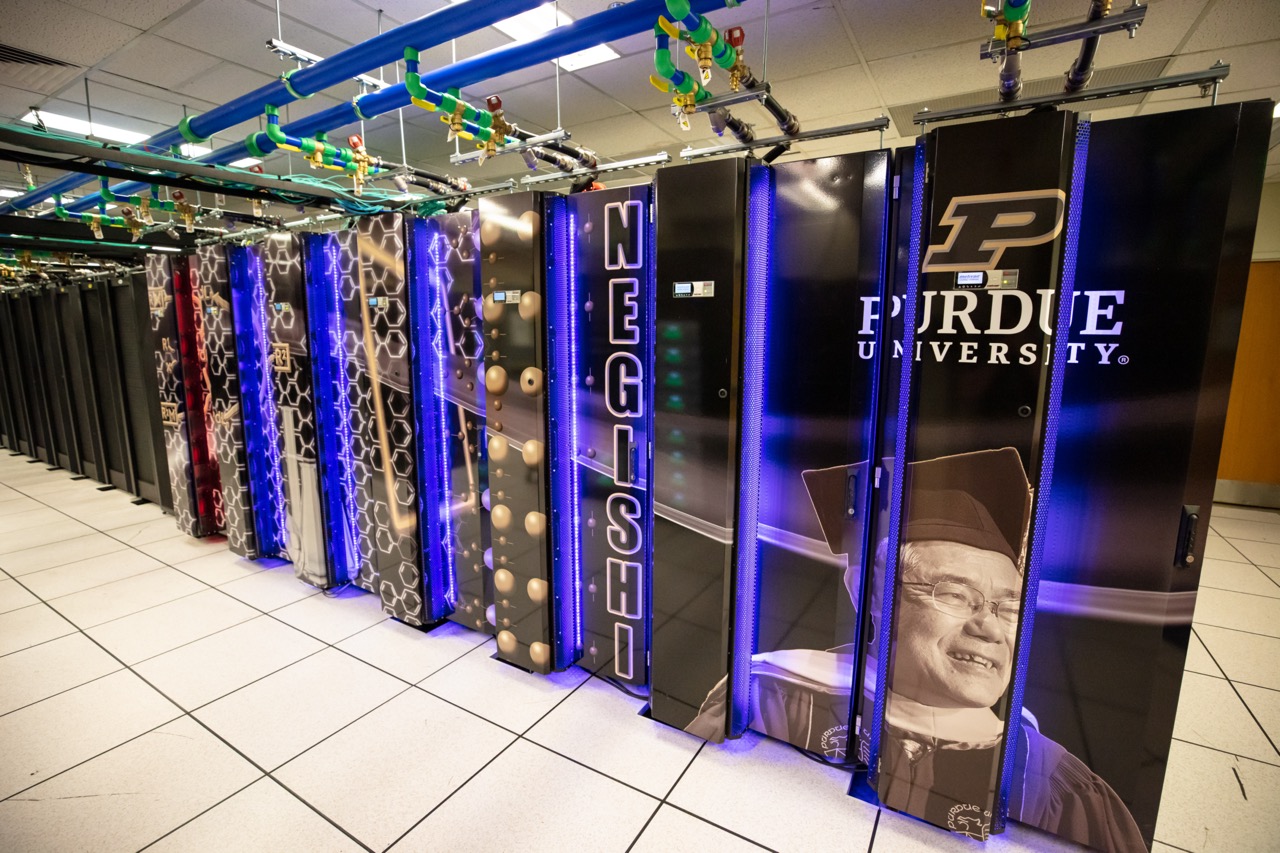
Negishi supercomputer now available for faculty use
The Purdue Rosen Center for Advanced Computing (RCAC)’s latest research supercomputer, Negishi, is now available for faculty use. Negishi, which is optimized for traditional, tightly-coupled science and engineering applications, was built through a p...
-
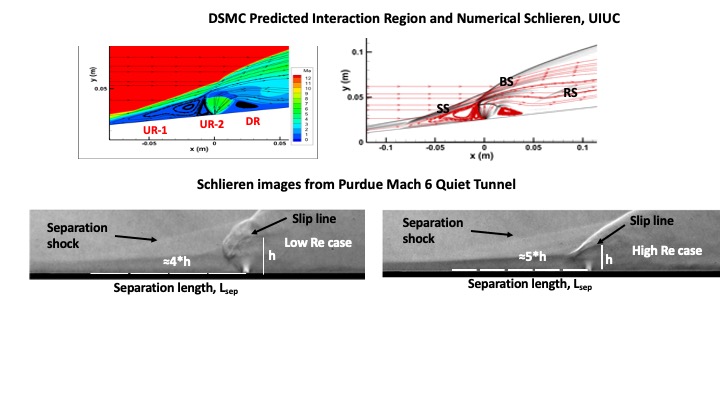
Research team using Anvil in hypersonics research
A team of researchers has been using the Rosen Center for Advanced Computing (RCAC)’s powerful Anvil supercomputer to study gaseous jets in hypersonic crossflow, which is useful for understanding the operations of the systems that are used to steer a...
-
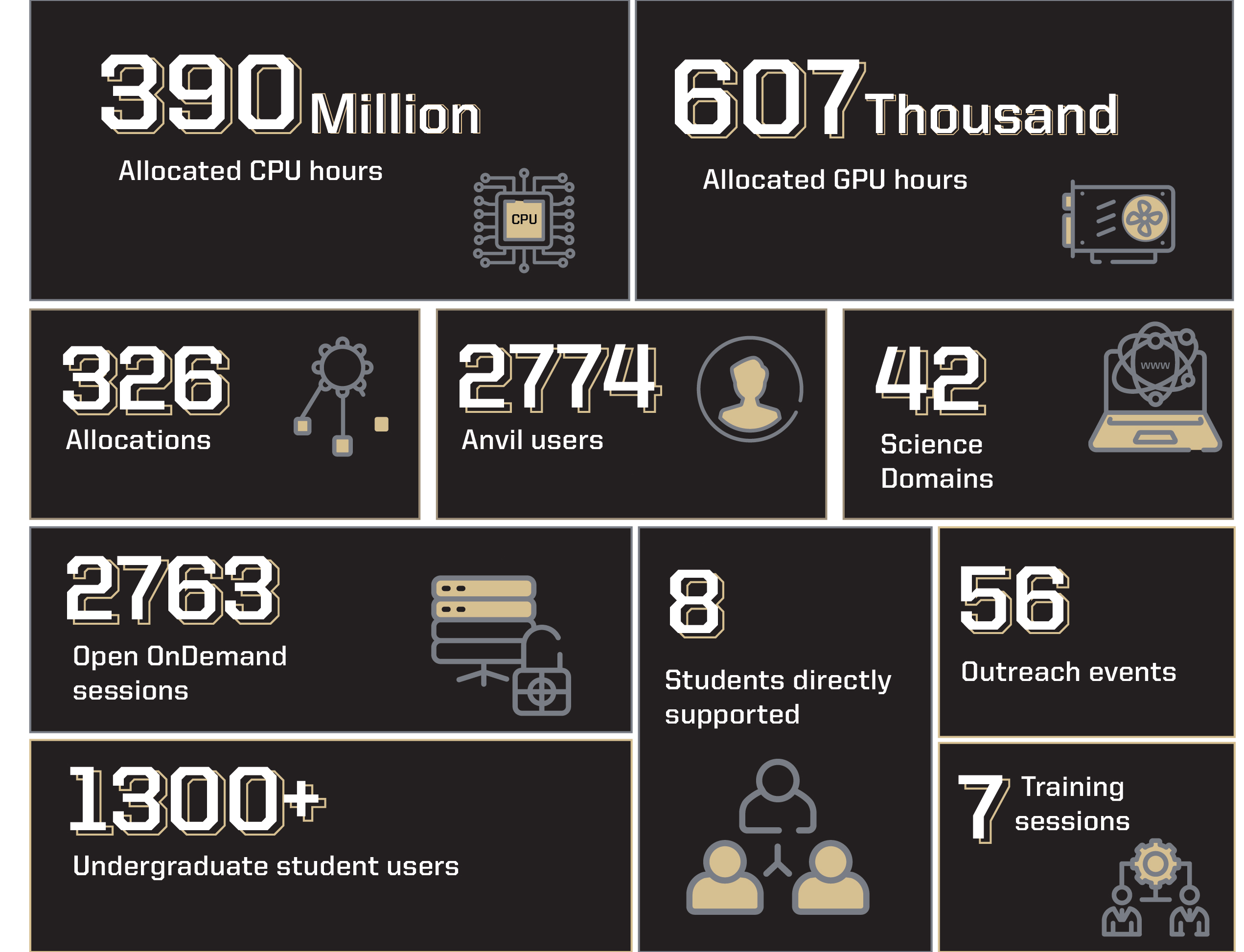
Purdue's Anvil supercomputer enters second year of production
Anvil, Purdue’s most powerful supercomputer, is hammering out progress as it forges ahead into the second year of operations. Funded by a $10 million grant from the National Science Foundation (NSF), Anvil began early user operations in November 2021...
